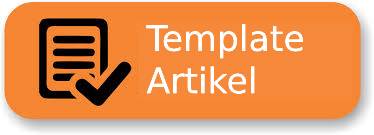Cegah KEK Sejak Hamil, Kurangi Resiko Stunting pada Bayi
Abstract
Based on data from the Central Java Provincial Health Office (2022), the prevalence of KEK among pregnant women in Central Java reached 14.5%, with several districts/cities showing rates above the provincial average. Klaten District is among the areas with significant cases of KEK, with a prevalence of around 15.8% (Klaten Health Office, 2022). The risk factors for the occurrence of KEK in pregnant women are economic factors (Poverty inhibits access to nutritious food), Low Nutrition Knowledge (Lack of understanding of nutritional needs during pregnancy), Limited Health Access (distance to health facilities or lack of health workers), Unbalanced diet (low consumption of protein, iron and calories), Chronic health conditions (Parasitic infections, anemia or other comorbidities), and teenage pregnancy (Young mothers < 20 years old tend to be biologically and nutritionally unprepared). Low Public Awareness Many pregnant women and couples of childbearing age (PUS) do not understand the importance of LILA examination and balanced nutrition, the long-term impact of KEK contributes to stunting and maternal / perinatal mortality, Preventive Interventions: Counseling aims to improve early detection through LILA measurement and nutrition counseling, Government Program Support In line with the Healthy Indonesia Program and Stunting Reduction interventions at the village level. The targets of the counseling were pregnant women and PUS in Manisrenggo area, posyandu cadres and families for continuous assistance. Counseling materials presented about KEK, the importance of nutrition during pregnancy, how to measure LILA independently, utilization of nutritious local foods (for example: tempeh, beans, green vegetables). Health education is effective to improve pregnant women's knowledge about KEK
References
Arisman, M.B. (2022). Gizi dalam Daur Kehidupan. Jakarta: EGC.
Bhutta, Z.A., Das, J.K., Rizvi, A., Gaffey, M.F., Walker, N., Horton, S. (2022). Maternal and Child Nutrition: Evidence of Impact and Solutions. The Lancet, 382(9890), 452-477.
Depkes RI. (2021). Pedoman Monitoring dan Evaluasi Program Kesehatan Ibu dan Anak. Jakarta: Departemen Kesehatan RI.
Dewi, M., & Khomsan, A. (2022). Pemanfaatan Pangan Lokal dalam Peningkatan Status Gizi Ibu Hamil KEK di Wilayah Pesisir. Jurnal Gizi dan Pangan, 17(2), 87-94.
Dewi, R.K., & Sulastri, D. (2022). Faktor Risiko Kejadian Kurang Energi Kronis (KEK) pada Ibu Hamil di Kota Padang. Jurnal Kesehatan Andalas, 11(2), 145-152.
Direktorat Kesehatan Keluarga. (2023). Panduan Implementasi Program Kemitraan Bidan dan Dukun. Jakarta: Kementerian Kesehatan RI.
Hardinsyah & Supariasa, I.D.N. (2023). Ilmu Gizi: Teori dan Aplikasi. Jakarta: EGC.
International Confederation of Midwives (ICM). (2022). Essential Competencies for Midwifery Practice. The Hague: ICM.
Kementerian Kesehatan RI. (2021). Pedoman Program Perencanaan Persalinan dan Pencegahan Komplikasi (P4K). Jakarta: Kementerian Kesehatan RI.
Kementerian Kesehatan RI. (2022). Pedoman Gizi Ibu Hamil dan Pengembangan Makanan Tambahan Ibu Hamil Berbasis Pangan Lokal. Jakarta: Kementerian Kesehatan RI.
Kementerian Kesehatan Republik Indonesia. (2022). Pedoman Pencegahan Kurang Energi Kronik pada Ibu Hamil. Jakarta: Kemenkes RI.
Kementerian Kesehatan RI. (2023). Laporan Hasil Riset Kesehatan Dasar (Riskesdas) Indonesia tahun 2023. Jakarta: Badan Penelitian dan Pengembangan Kesehatan.
Kemenkes RI (2022). Panduan Tata Laksana Gizi pada Ibu Hamil KEK. Jakarta.
Kusuma, R.M., Khomsan, A., & Kustiyah, L. (2022). Faktor-Faktor yang Mempengaruhi Kejadian KEK pada Ibu Hamil di Kabupaten Bogor. Media Gizi Indonesia, 17(1), 75-84.
Kusumawati, Y., Astuti, D., & Ambarwati, R. (2022). Pemberdayaan Kader Posyandu dalam Deteksi Dini KEK pada Ibu Hamil di Kabupaten Sukoharjo. Jurnal Pengabdian Masyarakat Dalam Kesehatan, 4(1), 24-30.
Lassi, Z.S., Kedzior, S.G., & Bhutta, Z.A. (2022).
Copyright (c) 2025 Bima Suryantara, Yunri Merida, Sandy Wigya, Wahyuningsih, Nursifa, Ratna Nurindah Sari, Nursriwatiningsih, Mita Herawati, Tina Zurni, Devita, Susan Susanti

This work is licensed under a Creative Commons Attribution-NonCommercial-ShareAlike 4.0 International License.







